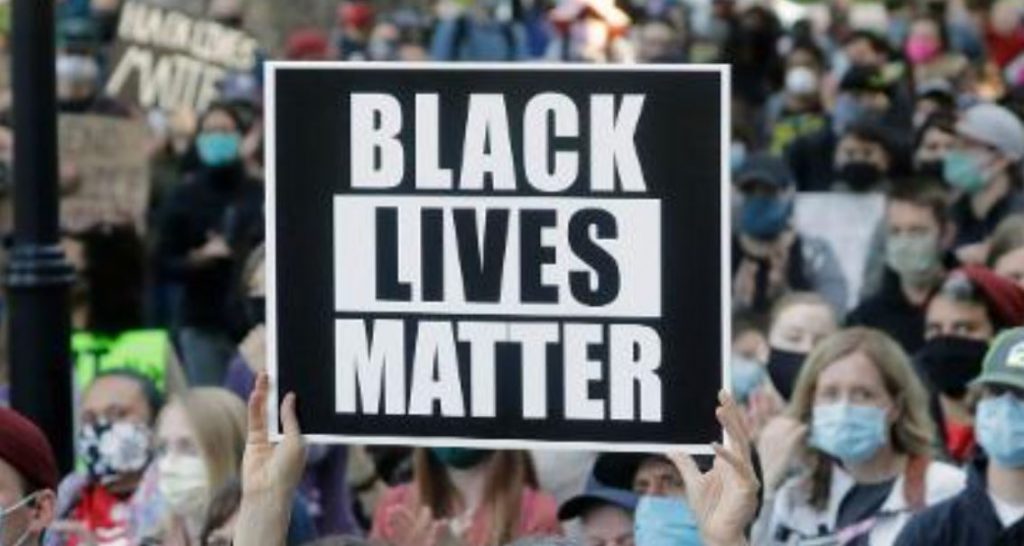

by Tiffany Foster
Some people say all lives matter and they do. But All Lives Matter erases the systematic oppression Black people have dealt with for centuries. Literally all lives can’t matter until Black lives matter.
U.S. systems and institutions behave as if Black lives don’t matter. For example, Black people are arrested more often and punished more harshly than people of other races committing the same crimes. Similar patterns show up in every other facet of American life in education, health care, banking, housing and more. These patterns are life altering and life threatening to the Black community.
Some say rioting and burning down businesses doesn’t help anyone. First and foremost, Black lives matter more than property. You can replace property. You can’t replace stolen Black lives.
Whether Black people are peaceful or violent, there will always be those who want to oppress people of color. Historically, the label riot is disproportionately applied to protests with more people of color in the crowd. Once a protest is called a riot by the media, the authorities or the president, the protesters are portrayed as a dangerous problem. That fear helps to justify police violence against protesters.
The protesters are not the problem. Cops and armed citizens killing Black people and those who allow them to go unpunished are the problem. The people who see it and do nothing are the problem.
We know that the majority of cops are hardworking people, but silence is compliance. If cops see other cops doing what they did to George Floyd, Breonna Taylor and so many more and don’t speak up, how good can they be? Law enforcement figures across the country who have condemned the actions of those officers, those are the good cops.
People say, “I’m not Black, Why do I care?” But just because you’re not Black doesn’t mean you can’t help. You can be an advocate for equality everyday. Anyone can understand the challenges Black Americans face if they are willing to learn more. The risk is that talking about racism and police brutality could create awkward moments. The bigger risk is leaving someone alone with their grief. Don’t let fear keep you silent.
Ending police brutality will require rethinking our criminal justice system from top to bottom. We need to transition away from a punitive system of locking people up, and invest in community services that lift people up. We need real accountability for police officers who use excessive force. We must end qualified immunity for police officers, so victims of police brutality can hold officers and departments that violate constitutional rights accountable in court.
Nearly three months ago, the House passed the George Floyd Justice in Policing Act–a bill which included some of those critically needed policing reforms. We must keep pushing for the Senate to vote on the bill and pass it. We cannot let Congress forget the names George Floyd, Breonna Taylor and so many Black Americans who should be alive today.
We must also fight to end systematic racism in every part of our society. I and others have a responsibility as White Americans to proactively dismantle systematic racism. Being an ally is simply not enough. We must be anti-racist too.
Originally published through the Prison Journalism Project. The article was originally published on their site.

